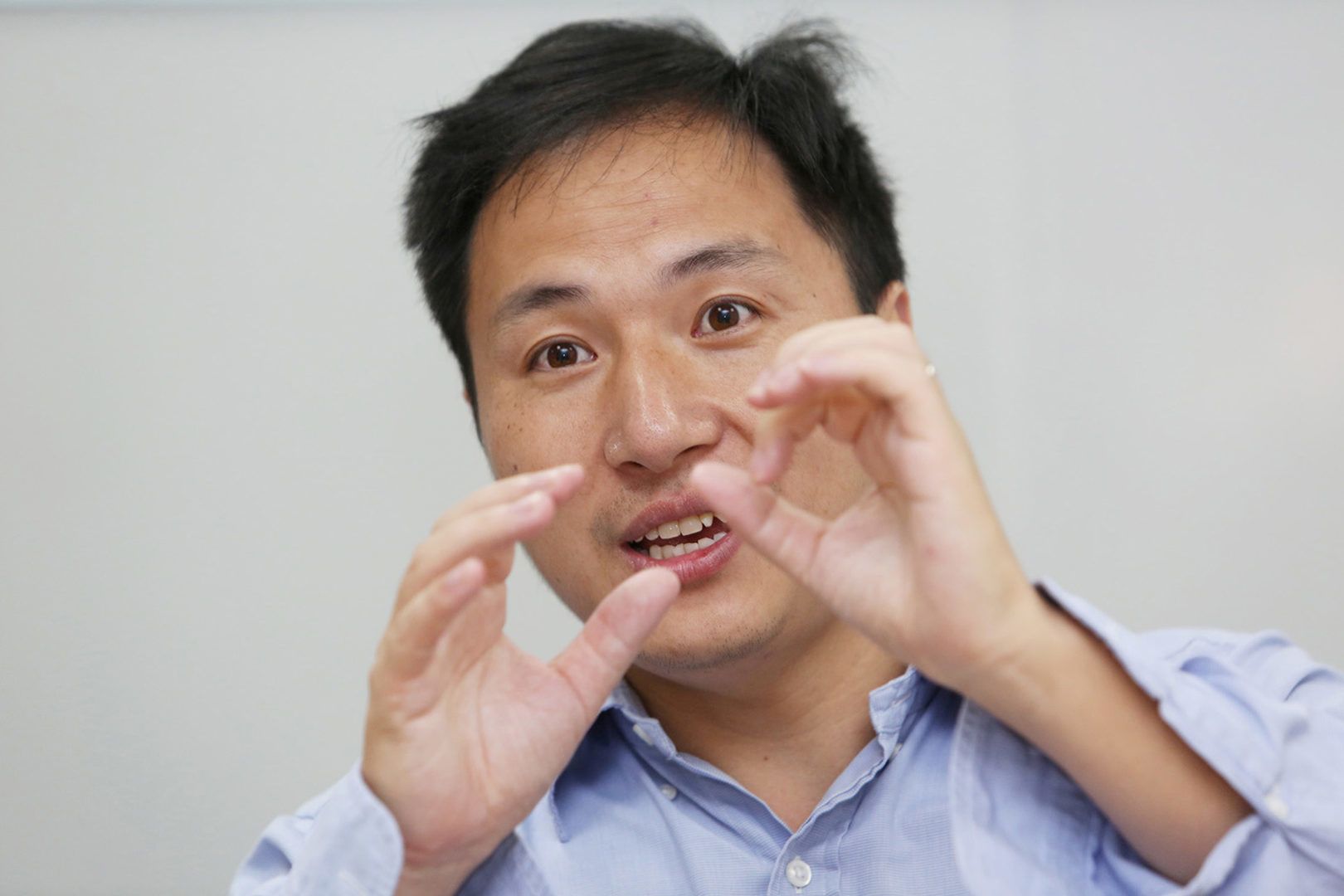December 05, 2018
Last week, a Chinese scientist sparked an uproar when he claimed that a woman had given birth to two babies whose DNA he had modified using an experimental gene-editing technology called CRISPR.
Here's a quick the rundown on why this is a big deal, politically.
What happened? The Chinese scientist, He Jiankiu, used CRISPR, a cheap, precise, and widely available DNA-editing technique, to change the genes of two human embryos before implanting them in their mother's womb. CRISPR had previously only been used in plant and animal experiments, on adult cancer patients, or non-viable human embryos. Its use to create gene-modified babies has sparked outrage and alarm.
What's the political angle? Internationally, governments and the private sector are excited about CRISPR, which could revolutionize agriculture and the treatment of disease by enabling edits to organisms' genes. Yet even before last week's news, some people worried that the same technology could be prone to ecological accidents, or be used by governments or terrorists to create new bio-weapons.
He's experiments, which were apparently carried out without basic oversight, will reinforce those concerns. It might eventually be possible to create human beings with improved intelligence, longer lifespans, or other genetic enhancements – a trend that would raise serious ethical issues, and could even inflame political tensions between countries that have conflicting views about which types of genetic changes should be allowed.
What's the upshot? Assuming the scientist's claims hold up to scrutiny, the world of custom-designed humans is no longer a far-off sci-fi fantasy, it's happening now. Questions about how to safely and ethically manage this revolution just took on new urgency.
More For You
Most Popular
Fishing boats moored at Taganga Beach, as fishermen express concern over unclear US government videos showing strikes on vessels during anti-narcotics operations, amid fears that those targeted may have been fishermen rather than drug traffickers, in Santa Marta, Colombia, on October 20, 2025.
REUTERS/Tomas Diaz
Walmart’s $350 billion commitment to American manufacturing means two-thirds of the products we buy come straight from our backyard to yours. From New Jersey hot sauce to grills made in Tennessee, Walmart is stocking the shelves with products rooted in local communities. The impact? Over 750,000 American jobs - putting more people to work and keeping communities strong. Learn more here.
© 2025 GZERO Media. All Rights Reserved | A Eurasia Group media company.
